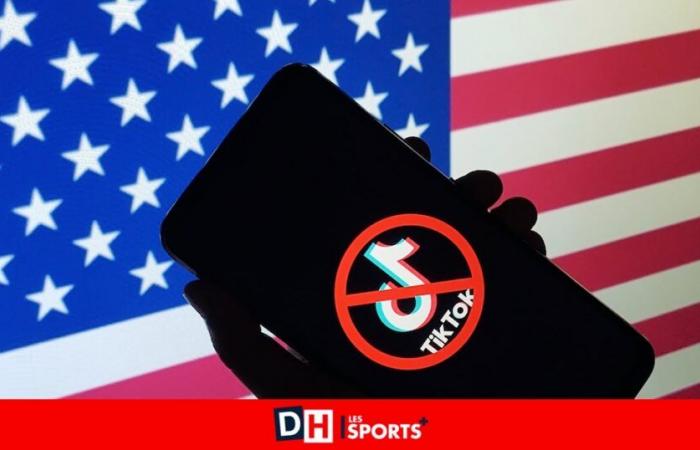
It’s unclear whether TikTok will turn off the lights on Sunday, or forever. Potential buyers exist, but ByteDance, the owner of TikTok, has so far systematically refused to sell its jewel.
Above all, Donald Trump, who will be inaugurated president on Monday, said he “needs time” to decide on the fate of the social network, promising to decide “in the fairly near future” whether or not to apply the law.
In the meantime, Ayman and many other content creators are contemplating the prospect of a future without TikTok.
One more step towards banning TikTok in the United States: the Supreme Court authorizes the entry into force of the law threatening the social network
“Mandarin out of spite”
“I started during the confinements because of the pandemic and now it’s as if I was unemployed,” says this reading enthusiast, who recommends books on the platform, and receives enough income from advertising and sponsors to meet its needs.
Like thousands of other TikTok users, she created a profile on Xiaohongshu (“Little Red Book”).
This Chinese social network similar to Instagram, nicknamed “Red Note” by Americans, is leading downloads of free applications this week on the American Apple Store (Apple’s mobile application store).
“I have the impression that it’s a protest movement. TikTok is banned because it belongs to a Chinese group, so people are going to a Chinese alternative,” she laughs.
“Are you learning Mandarin out of spite? You’re not the only one,” Duolingo, an app for learning foreign languages, said on X Tuesday.
“We saw a 216% increase in the number of new Chinese (Mandarin) learners in the United States compared to this time last year.”
On TikTok, many American creators have posted videos combining their favorite moments on the app and farewell messages calling for them to follow them on other platforms, including Xiaohongshu, openly mocking the concerns of their elected officials.
-Donald Trump reportedly considering executive order to push back looming TikTok ban
“Micro-influencers”
“My students don’t buy the idea that Chinese spies control the algorithm and everything else,” said Chris Dier, a history teacher who makes educational videos on the platform and uses them in his classes. .
“Most of them think that the United States government doesn’t like TikTok because it…can’t easily control it.”
Beyond the snub of American users, it is not certain that Xiaohongshu, which is entirely in Mandarin, constitutes a long-term solution.
Already very popular before the pandemic, TikTok saw widespread adoption during lockdowns and became essential for many small and very small businesses.
“It’s a scary time for a lot of small creators, because TikTok is one of the few platforms on the internet where micro-influencers can really thrive,” notes Nathan Espinoza, who has more than 550,000 followers on the app.
US TikTok users are switching to other Chinese apps
The social network has in fact built its success not on connections with loved ones, but on its ultra-powerful algorithm, capable of quickly identifying a user’s interests and offering them appropriate clips.
“I’m more focused on YouTube now, but I wouldn’t be where I am today without TikTok,” says Nathan. “My first viral video showed me that it was possible and that there was an audience for the type of videos I was making.”





